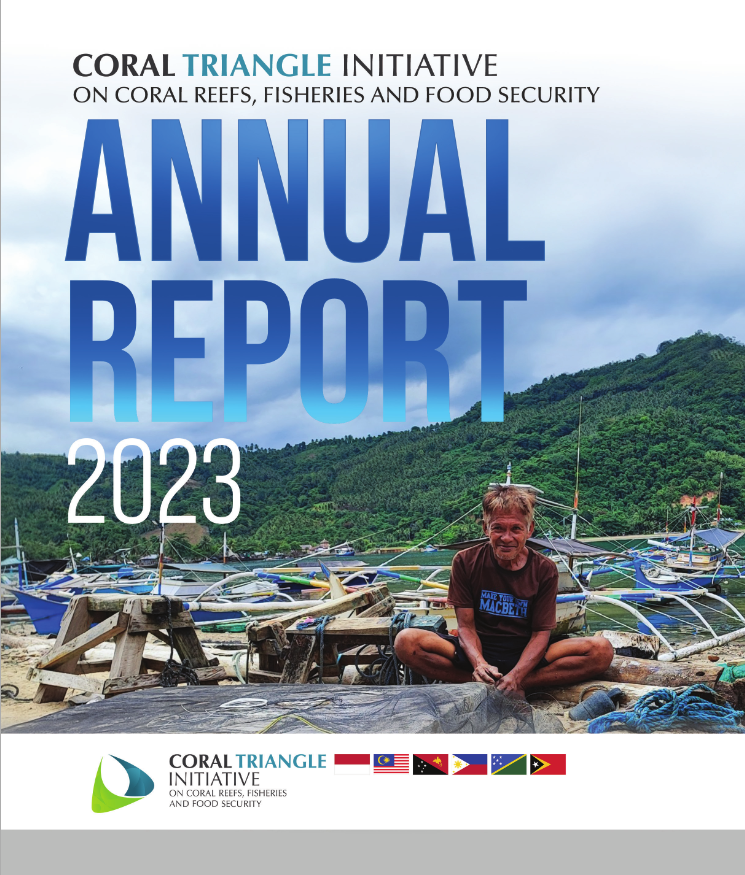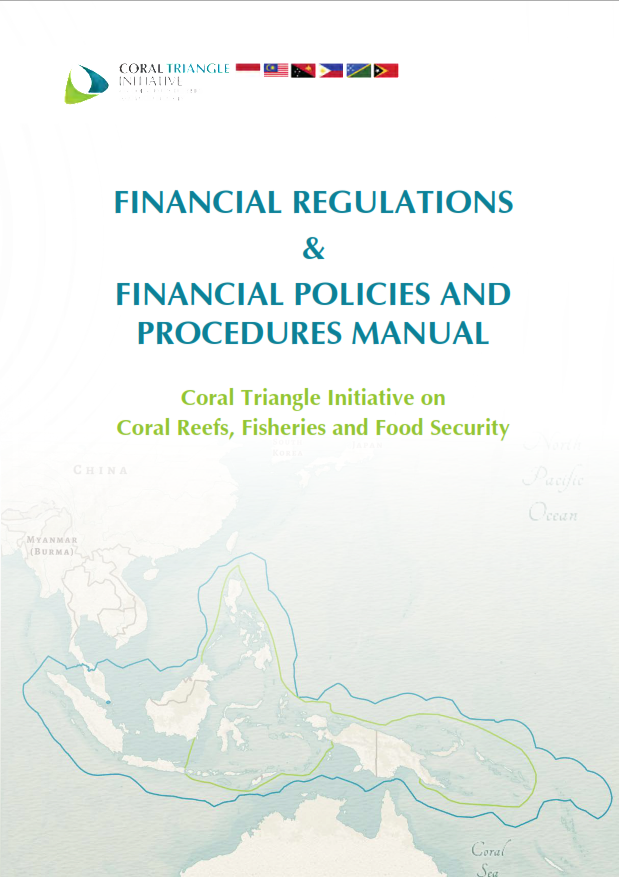Strengthening Ties for a Sustainable Coral Triangle Through a Courtesy Visit to Honiara
Strengthening Ties for a Sustainable Coral Triangle Through a Courtesy Visit to Honiara
From July 22 to 25, 2024, CTI-CFF’s new Executive Director, Dr. Frank Griffin, along with Technical Program Manager Corzzierrah Posala, embarked on an inaugural courtesy visit to the Solomon Islands. This visit marked Dr. Griffin's first official engagement in Honiara since assuming office, showcasing his dedication to building robust alliances across the Coral Triangle region. His mission emphasized strengthening ties with local ministries, fostering collaborations with conservation organizations, and promoting community-centered marine conservation.
Their initial meeting was with the Minister of Environment, Climate Change, Disaster Management, and Meteorology (MECDM), Hon. Trevor Mahaga, who extended a warm welcome to the CTI-CFF team. Dr. Griffin expressed his gratitude and presented CTI-CFF's strategic vision under the Regional Plan of Action (RPOA) 2.0. The dialogue underscored the importance of a robust and technically proficient Secretariat to support member states, with Hon. Mahaga reaffirming the Solomon Islands' commitment to marine conservation. The Minister and his team highlighted the need for stable funding to enhance national capacity, an issue Dr. Griffin acknowledged and committed to addressing through organizational restructuring aimed at increasing operational efficacy.
Following this, Dr. Griffin met with a board member from the Coral Triangle Conservation Fund (CTCF), Dr. Michael Hapio’o, Climate Change Advisor to the Solomon Islands Government. Dr. Hapio’o was accompanied by Mr. Barnabas Bago. Together, they discussed the importance of the CTCF’s funding for strategic initiatives like Spatial Mapping, Community-Based Resource Management (CBRM), and Sustainable Blue Financing. The meeting set a collaborative tone, with participants underscoring the potential for regional funding opportunities to support CTI-CFF’s efforts. Dr. Hapio’o noted an exciting prospect: tapping into international funding sources such as the Green Climate Fund (GCF) and Global Environment Facility (GEF), which could amplify the impact of CTI’s regional initiatives.
Dr. Griffin’s conversation with the Minister of Fisheries and Marine Resources, Hon. Nester Giro, revealed the pride Solomon Islands takes as a founding member of the CTI. Hon. Giro expressed high expectations for CTI-CFF’s support in national fisheries projects and reinforced the importance of sustainable resource management within local contexts. The Ministry’s Permanent Secretary, Dr. Christian Ramofafia, echoed this sentiment, calling for alignment of CTI projects with Solomon Islands’ policies to enhance community participation. Dr. Griffin provided an update on the Regional Secretariat’s restructuring, explaining that its primary purpose is to better serve member countries’ needs by addressing local challenges directly.
During a meeting with the Solomon Islands National University (SINU), Dr. Griffin engaged in meaningful exchanges with Chancellor Dr. Morgan Wairiu and Vice Chancellor Dr. Transform Aqorau. The leaders discussed how SINU could contribute to CTI’s goals through the University Partnership Network. Dr. Aqorau welcomed the partnership, envisioning future collaboration on research and capacity-building efforts. Dr. Griffin highlighted SINU’s potential role in advancing conservation education and strengthening scientific foundations for sustainable resource management.
Engagements with international conservation organizations formed another vital component of the visit. At the World Wide Fund for Nature (WWF) office, Dr. Griffin and Mr. Posala met with WWF Solomon Islands Country Manager Mr. Shannon Seeto. Their conversation highlighted WWF’s focus on community-based resource management, particularly in areas like Isabel Province. Dr. Griffin commended WWF’s efforts in engaging local communities, suggesting that CBRM could play a more integral role in CTI’s ecosystem-based fisheries management framework.
The next day, discussions with WorldFish Solomon Islands centered around climate resilience and sustainable coastal fisheries. Led by Ms. Janet Saeni-Oeta, WorldFish highlighted projects aimed at bolstering food security and diversifying livelihoods for coastal communities. The organization’s emphasis on gender inclusion resonated strongly with the CTI-CFF’s mission, and both parties agreed on the importance of joint efforts to strengthen community capacities. Dr. Griffin acknowledged WorldFish’s impact and suggested exploring more opportunities for collaborative projects, including seconding technical experts to support CTI-CFF’s initiatives.
The meeting with The Nature Conservancy (TNC), represented by Program Manager Mr. Philip Diau, underscored TNC’s work in the Arnavon Marine Park. Mr. Diau elaborated on TNC’s integrated conservation projects, which blend marine and terrestrial management to address Solomon Islands’ unique environmental challenges. Dr. Griffin applauded TNC’s focus on community engagement in conservation and proposed a continued partnership to drive sustainable development and biodiversity preservation across the Coral Triangle region.
In his final engagement, Dr. Griffin met with the Director General of the Forum Fisheries Agency (FFA), Mr. Noan Pakop. This meeting laid the groundwork for future collaborations on fisheries governance, particularly in regions extending beyond national jurisdictions. Dr. Griffin highlighted CTI-CFF’s dedication to responsible fishing practices and conservation within these high-seas areas. The shared commitment to regional resource management fostered a promising foundation for joint actions that would address both countries’ ecological priorities.
The Regional Secretariat’s visit not only strengthened relationships with key stakeholders but also laid a solid foundation for future collaboration on critical initiatives such as sustainable fisheries, marine conservation, and community-based resource management for Solomon Islands. Following the visit, the CTI-CFF Regional Secretariat will work closely with the Solomon Islands to advance commitments made during the discussions, including enhancing capacity-building programs, exploring funding opportunities, and aligning national and regional conservation efforts. These follow-ups aim to ensure that the outcomes of the visit translate into tangible benefits for the Solomon Islands and the broader Coral Triangle region.



